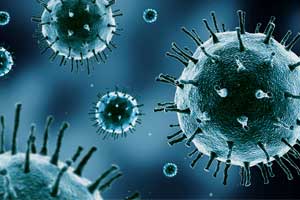- Home
- Editorial
- News
- Practice Guidelines
- Anesthesiology Guidelines
- Cancer Guidelines
- Cardiac Sciences Guidelines
- Critical Care Guidelines
- Dentistry Guidelines
- Dermatology Guidelines
- Diabetes and Endo Guidelines
- Diagnostics Guidelines
- ENT Guidelines
- Featured Practice Guidelines
- Gastroenterology Guidelines
- Geriatrics Guidelines
- Medicine Guidelines
- Nephrology Guidelines
- Neurosciences Guidelines
- Obs and Gynae Guidelines
- Ophthalmology Guidelines
- Orthopaedics Guidelines
- Paediatrics Guidelines
- Psychiatry Guidelines
- Pulmonology Guidelines
- Radiology Guidelines
- Surgery Guidelines
- Urology Guidelines
Curb Antimicrobial resistance promptly to avert global crisis, urges UN report

No scope for waiting and watching anymore. United Nations (UN) Interagency Coordination Group (IACG) in its groundbreaking report, has called for an urgent, coordinated and ambitious action to curb antimicrobial resistance.
Currently, at least 700,000 people die each year due to drug-resistant diseases, including 230,000 people who die from multidrug-resistant tuberculosis. More and more common diseases, including respiratory tract infections, sexually transmitted infections, and urinary tract infections, are untreatable; lifesaving medical procedures are becoming much riskier, and our food systems are increasingly precarious.
"Antimicrobial resistance is one of the greatest threats we face as a global community. This report reflects the depth and scope of the response needed to curb its rise and protect a century of progress in health," Amina Mohammed, UN deputy secretary-general and co-chair of the IACG, said in a World Health Organization (WHO) press release. "It rightly emphasizes that there is no time to wait and I urge all stakeholders to act on its recommendations and work urgently to protect our people and planet and secure a sustainable future for all."
It recommends countries:
- prioritize national action plans to scale-up financing and capacity-building efforts;
- put in place stronger regulatory systems and support awareness programs for responsible and prudent use of antimicrobials by professionals in human, animal and plant health;
- invest in ambitious research and development for new technologies to combat antimicrobial resistance;
- urgently phase out the use of critically important antimicrobials as growth promoters in agriculture.
The recommendations require immediate engagement across sectors, from governments and the private sector to civil society and academia.
This report reflects a renewed commitment to collaborative action at the global level by the World Food and Agriculture Organization of the UN (FAO), the World Organisation for Animal Health (OIE) and the World Health Organization (WHO).
“The report’s recommendations recognize that antimicrobials are critical to safeguard food production, safety and trade, as well as human and animal health, and it clearly promotes responsible use across sectors,” said José Graziano da Silva, Director-General of the Food and Agriculture Organization of the United Nations (FAO). “Countries can foster sustainable food systems and farming practices that reduce the risk of antimicrobial resistance by working together to promote viable alternatives to antimicrobial use, as laid out in the report’s recommendations.”
“Antimicrobial resistance must be addressed urgently, through a One Health approach involving bold, long-term commitments from governments and other stakeholders, supported by the international organizations,” said Dr. Monique Eloit, Director General of the World Organisation for Animal Health (OIE).“This report demonstrates the level of commitment and coordination that will be required as we face this global challenge to public health, animal health and welfare, and food security. We must all play our part in ensuring future access to and efficacy of these essential medicines.”
“We are at a critical point in the fight to protect some of our most essential medicines,” said Dr. Tedros Adhanom Ghebreyesus, Director-General of the World Health Organization and Co-Chair of the IACG. “This report makes concrete recommendations that could save thousands of lives every year.”
The report highlights the need for coordinated and intensive efforts to overcome antimicrobial resistance: a major barrier to the achievement of many of the UN Sustainable Development Goals, including universal health coverage, secure and safe food, sustainable farming systems and clean water and sanitation.

Disclaimer: This site is primarily intended for healthcare professionals. Any content/information on this website does not replace the advice of medical and/or health professionals and should not be construed as medical/diagnostic advice/endorsement or prescription. Use of this site is subject to our terms of use, privacy policy, advertisement policy. © 2020 Minerva Medical Treatment Pvt Ltd